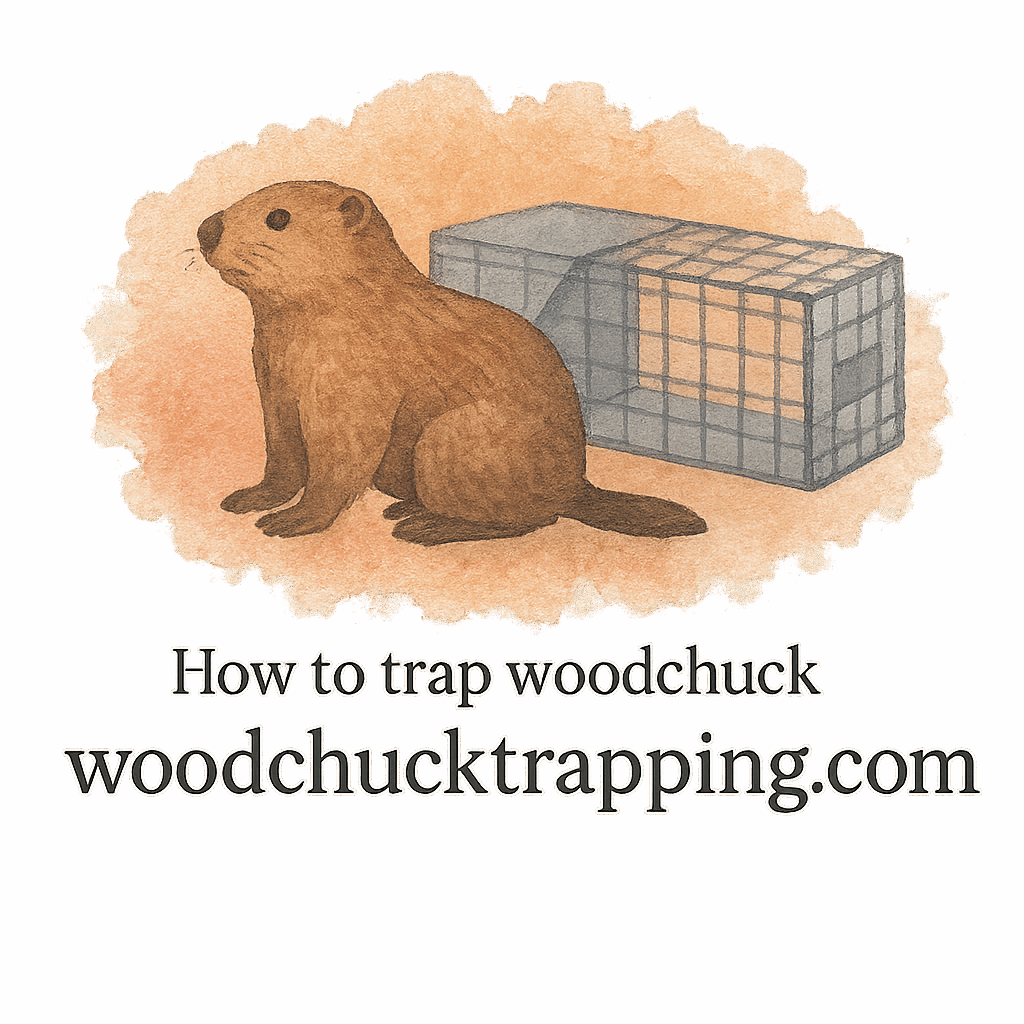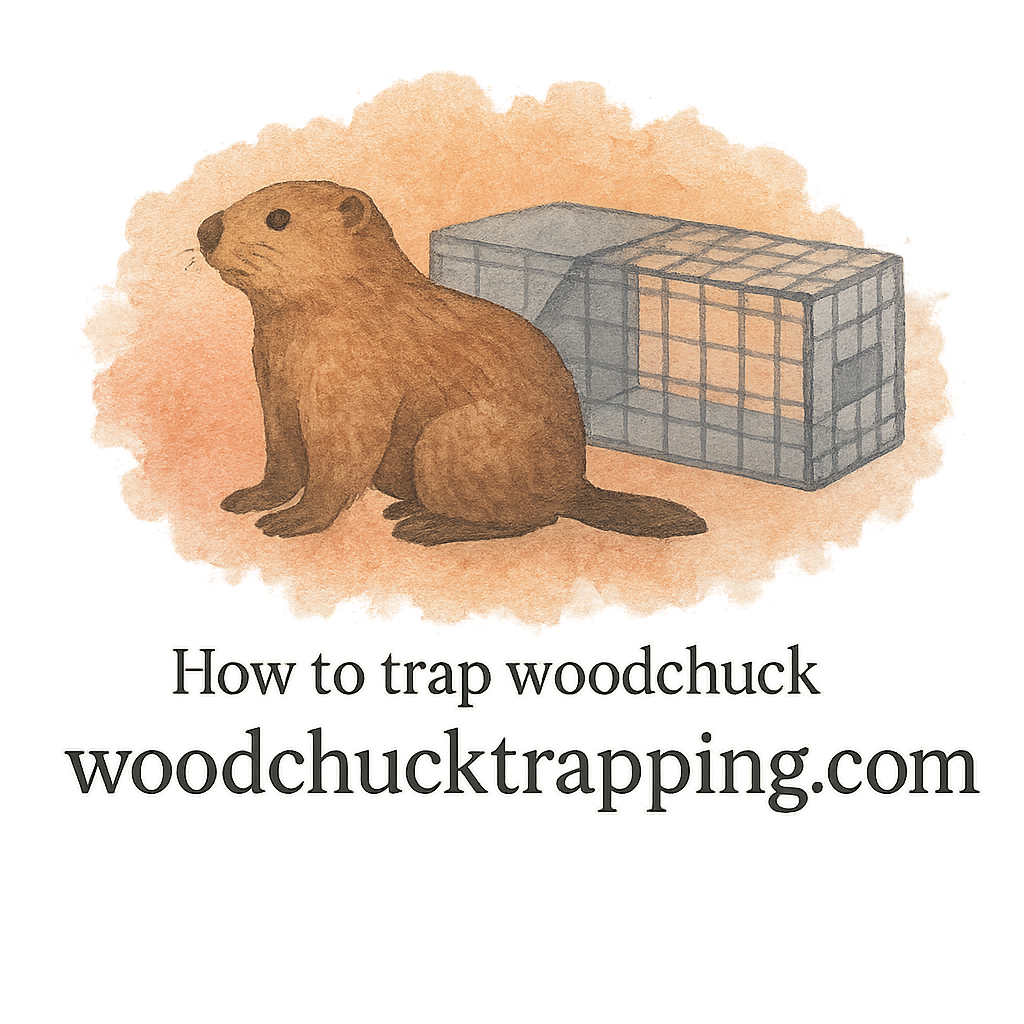Introduction
Have you spotted fresh mounds of dirt in your garden or noticed plants disappearing overnight? Chances are, you’ve got a woodchuck problem. These little diggers, also known as groundhogs, can wreak havoc on your yard. But here’s the thing—controlling them doesn’t have to be cruel. With the right humane woodchuck trapping techniques, you can manage the problem while keeping the animal safe.
This guide will walk you through the 10 best kits for humane woodchuck trapping techniques, essential tools, and prevention strategies so you can protect your yard without harming wildlife.
Why Humane Woodchuck Trapping Matters
Balancing Wildlife Control and Compassion
Woodchucks may damage gardens, burrow under sheds, and leave behind messy holes, but they’re still a vital part of local ecosystems. That’s why using humane trapping methods ensures balance—protecting your space while respecting wildlife.
For more guidance on choosing the right gear, check out trapping techniques.
Common Signs of a Woodchuck Infestation
Before you set traps, you need to confirm the culprit. Look for:
- Fresh burrows near foundations or gardens
- Chewed plants and vegetables
- Tracks and droppings near food sources
Want to dig deeper? Visit the signs of infestation guide.
Essential Tools for Humane Trapping
Traps Designed for Minimal Stress
Not all traps are created equal. The best options are live cage traps that allow you to relocate woodchucks without injury. Browse compact traps for smaller yards or heavy-duty ones for larger properties.
Gloves, Handling Tools, and Safety Gear
A trapped woodchuck can be stressed and defensive. Always use protective gloves and safe handling tools to reduce risks for both you and the animal.
Compact Traps for Small Yards
If space is tight, opt for minimal-space traps designed for smaller setups.
Factors to Consider When Choosing a Trapping Kit
Effectiveness
The trap should work consistently without harming the animal.
Safety for You and the Woodchuck
Check that the trap avoids sharp edges and prevents injury during capture.
Durability of Materials
Weather-resistant steel and solid construction ensure long-term use.
Ease of Use
If it’s too complicated, you’ll likely set it up wrong. Look for kits with clear instructions and simple assembly.

Top 10 Kits for Humane Woodchuck Trapping Techniques
1. Heavy-Duty Live Cage Trap Kit
Perfect for frequent infestations. This kit includes a sturdy steel trap, trap scent, and safety gloves.
2. Compact Trap Kit for Small Yards
Designed for tight spaces, this kit comes with lightweight, compact traps and bait.
3. Professional Woodchuck Trapping Essentials Kit
Includes multiple traps, baiting tools, and safety trap gear for large properties.
4. Humane Baiting and Luring Kit
Specialized for attracting woodchucks, this package includes premium baiting and luring supplies.
5. All-in-One Safety & Handling Kit
Comes with reinforced handling gloves, protective clothing, and guides for safe relocation.
6. Minimal-Space Humane Trap Gear Kit
Ideal for urban homeowners, featuring compact traps, bait, and minimal-space tools.
7. Advanced Humane Trapping Techniques Kit
This pro-level set focuses on advanced techniques with durable traps and expert guides.
8. Outdoor Yard Protection & Prevention Kit
Beyond trapping, it includes fencing materials and repellents for yard damage prevention.
9. Scent-Bait and Lure Combination Kit
Maximizes success with specialized scent-bait and lure blends.
10. Complete DIY Humane Woodchuck Trapping Bundle
Great for beginners, this bundle covers traps, bait, and a how-to-trap guide.
Step-by-Step Guide to Humane Woodchuck Trapping
Preparing the Area
Clear obstacles and identify active burrows. See more on burrows.
Choosing the Right Trap Placement
Set traps near entrances and pathways.
Using Proper Bait and Lure
Vegetables, fruits, and lure combinations increase success.
Monitoring the Trap
Check frequently—never leave a woodchuck in the trap for too long.
Handling a Trapped Animal Safely
Always use proper humane handling methods and relocate according to laws and safety.
Common Mistakes to Avoid
- Using the wrong bait
- Leaving traps unchecked
- Ignoring local trapping laws
- Relocating without considering the animal’s safety
Legal and Safety Considerations
Every state has its own rules about relocating wildlife. Always check laws and safety before trapping.
Preventing Future Yard Damage
Securing Gardens and Burrows
Install fences and barriers near vulnerable areas.
Long-Term Wildlife Management
Combine traps with prevention techniques to reduce future infestations.
Conclusion
Dealing with woodchucks doesn’t mean harming them. With the 10 best kits for humane woodchuck trapping techniques, you can manage your yard safely and effectively. By choosing the right gear, following step-by-step practices, and respecting legal guidelines, you’ll protect your property while keeping wildlife safe.
For more tips, visit Woodchuck Trapping and explore expert resources.
FAQs
1. What is the most effective bait for woodchuck traps?
Fresh vegetables, apples, and scent-baits work best.
2. Can I trap woodchucks in a small yard?
Yes, use compact traps designed for minimal-space areas.
3. Are humane traps safe for children and pets?
Most are, but always supervise and use secure trap gear.
4. How often should I check my traps?
At least twice daily to ensure humane treatment.
5. Do I need a license to trap woodchucks?
Check local laws and safety requirements.
6. How do I prevent woodchucks from returning?
Combine trapping with yard damage prevention strategies like fencing.
7. What should I do if I catch a trapped animal other than a woodchuck?
Release it immediately using safe handling methods.


